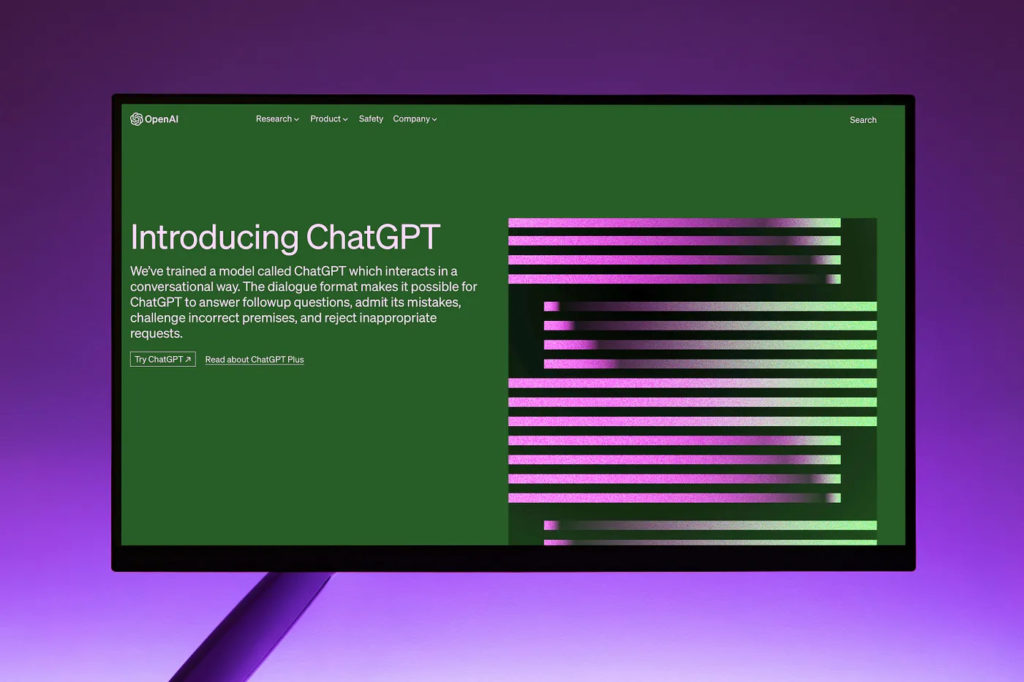What if ChatGPT wrote my columns?

I have been writing a regular column since 2016 — first for Swarajya Magazine, then for Mint and now my bi-weekly column FLYLEAF for New Indian Express. Every column takes up to 40 hours of my time including reading, writing, thinking, and editing. While I pride myself in being able to write quickly, it is the research and reading that takes almost 90% of the time. Most of my columns focus on a theme with the backdrop of books (typically I would mention around 5 books in my 650word column). Once ChatGPT (an OpenAI tool, where GPT stands for Generative Pre-trained Transformer) became a sensation, I wondered if my role as a columnist is relevant. To test this question, I conducted a Turing Test (a test of a machine’s ability to exhibit intelligent behaviour equivalent to, or indistinguishable from, that of a human) and here is what I found.
I took a topic that was known but not very common amongst my readers (Slavery in American History). Since most of my readers are in India, the reference to books in this genre (Slave Literature) will be unique. So, I wrote my column and submitted it to my editor. In parallel, I asked ChatGPT to write a 650-word essay for me. Here was my prompt. “Please write a 650-word essay about slavery in America with the backdrop of books on the subject, in the voice of The New Indian Express columnist V.R. Ferose”. I took both the articles (one written by me and the other by ChatGPT) and sent it to a controlled group of 21 people who knew me well (they know my style and voice of writing and read my columns regularly). I asked them to let me know which article was written by me and which one was written by ChatGPT. Interestingly, 14 people got it right and 7 got it wrong. While this is something I was happy about (and not surprised), I then took the Turing test with 21 people — who did not read my column regularly (here the people were two degrees separated from me). In this scenario 11 got it right and 10 got it wrong. I was not surprised by this either (the probability being the same as the toss of a coin). Now, here is what I am worried about — ChatGPT will get more powerful (ChatGPT4 will be trained on Billions of data sets and will be a million times more powerful that the current ChatGPT3). ChatGPT3 is trained on more than 175 billion parameters and receives around 10 million queries per day. It is trained on information from the internet until 2021, but it can copy the style of writing too. If it takes 40 hours for me to write an article, it takes a few seconds for ChatGPT to do the same. To say that ChatGPT is disruptive will be an understatement. College essays can now be written by ChatGPT and hence colleges in the US are pushing for a rethinking of how learning and teaching would happen. OpenAI has released GPT-4, which is better at generating text than previous versions. ChatGPT4 can learn from not only text, but also from images. ChatGPT4 will be able to write a 60,000-word book from a single prompt! Google has built LaMDA, a rival chatbot, and Microsoft is discussing a $10 billion investment in OpenAI. Silicon Valley start-ups, including Stability AI and Character.AI, are also working on generative A.I. tools. There is a reason why ChatGPT reached a million users in 5 days! Imagine the computing power behind these AI. In short, Cloud belongs to the past, AI is the future!
However, among the many possible sadness in life are, one, to value easy answers more than hard questions, two, not to find any significant questions worth living out from or into, or three, to get to the end of our life and to realize we gave ourselves to the wrong questions, to questions that are not worthy of that which is deepest within us. So, while ChatGPT can give us all the answers, it is the hard questions and our personal search that matters. As Grady Booch, developer of the Unified Modeling Language said, “A fool with a tool is still a fool!”. For the true seeker, ChatGPT is just a tool.
So, are columnists still relevant? I think there is place for people with original ideas eg. there will continue to be a reader for opinion pieces from thought leaders. Every other piece of writing esp. if focused on information is commodity. Regarding my own role as a columnist, time will tell!
As actress and writer Lisa Ray tweeted, “Chat GPT is essentially an idiot savant (think Rain Main) filing away and drawing on the well of knowledge humanity has created. So far, the oasis of originality and creativity is safely tucked within the human spirit.”
Let me conclude with my 3 key takeaways:
1. In the future, anything manual and done by humans will be expensive and will only be for the elite (eg. a hand-made book). Everything else can be done by a machine, will be mass produced and cheap.
2. AI will actually take over creative task (art, writing etc) before it takes over manual tasks (eg packaging still needs human intervention). Many of us were wrong in assuming the other way around.
3. The jobs in demand for the future will be “Eye contact” jobs — where people need to make eye to eye contact eg. elderly care. This may well be the final frontier — when machines can start taking care of people in an emphatic way and AI becomes sentient, it may well will be the end of civilization.
(*All data mentioned about ChatGPT is as of March 2023)

